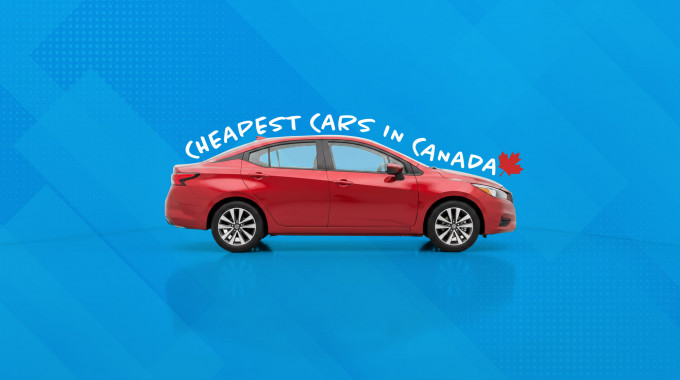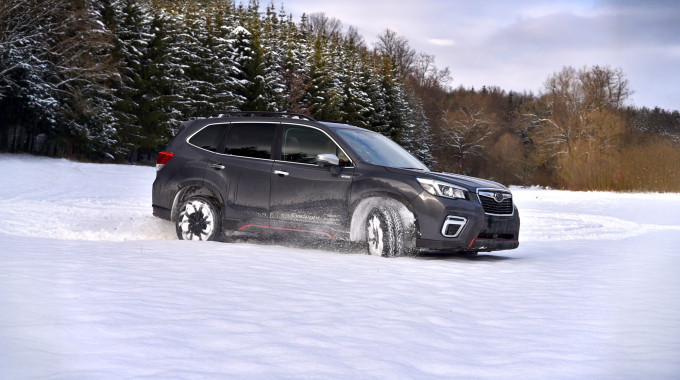
5 Cheapest Used Electric Vehicles (EVs) in Canada for 2022
Virtually everywhere you look nowadays, you’re sure to spot at least one electric vehicle on the road. And with so many benefits of EVs — which most major manufacturers already either currently have a small stable of, or committed to at least one model in the near future — it’s really no mystery why a sizable group of people are making the switch.
From an environmental standpoint, not relying on the burning of fossil fuel for propulsion means they don’t emit any greenhouse gas emissions. And no more trips to the pump can add up to big savings due to the lower cost of electricity. The average Canadian who drives 20,000 kilometres per year can save up to $2,000 annually.
Due to advances in technology, economies of scale, and the fact that the technology has been available for a few years now, prices of these zero-emissions automobiles have dropped significantly. And while there are some battery concerns the older an EV gets, drivers generally enjoy less maintenance and repair costs than most gas-powered car owners.
5 cheapest pre-owned electric vehicles
Here are our top picks for the five cheapest used electric vehicles. See something you like? Find out what you're eligible for. Get a free, no-obligation pre-approval with Canada Drives.
Nissan Leaf

Years: 2011 - 2017
Estimated price: $11,000 - $16,000
A decade ago, Nissan pioneered the way of releasing the first mass-produced affordable EV in the Leaf. Though the specs are modest in relation to today’s standards, its 80-kilowatt AC synchronous motor, powered by 48 lithium-ion battery modules, was then impressive indeed generating 107 horsepower and 207 lb-ft of instant-on torque.
Packaged in a versatile and compact form factor with plenty of room occupants and gear, the five-door has a range of about 160 kilometres and can be easily charged at home via a Level 2 outlet in eight hours, or 30 minutes at a DC fast charger (up to 80 percent capacity).
There were also plenty of features ahead of their time like LED headlights, consuming half of the electricity of traditional halogen bulbs, a seven-inch infotainment display, a complimentary mobile app to remotely control climate and other settings, and interior upholstery and trim made using recycled materials.
Kia Soul EV

Years: 2014 - 2019
Estimated price: $12,000 - $22,000
Called an “urban hatchback” due to its funky aesthetic, easy manoeuvrability and comfortable ride, the Kia Soul EV marked the brand’s first fuel-free model sold outside of Korea. The 81-kilowatt motor is good for 109 horsepower and 210 lb-ft of torque, and the 27-kilowatt-hour battery pack yields 150 kilometres of range.
Thanks to a boxy shape the car affords excellent visibility and is easy to park even in tight city spots. The absence of a conventional engine and application of special soundproofing insulation creates a whisper-quiet ride, while a Virtual Engine Sound System ensures surrounding pedestrians are safe by playing an audible alert at speeds below 20 km/h and when in reverse.
A complete recharge takes five hours at 240 volts.
Volkswagen e-Golf

Years: 2015 - 2020
Estimated price: $17,000 - $27,000
The Volkswagen Golf has earned the reputation of being fun-to-drive and the story is still the same with the addition of a plug-in version. Built upon the sporty Modular Transverse Matrix (MQB) platform, the powertrain is comprised of an in-house built 85-kilowatt motor and a 24.2-kilowatt-hour battery sending 115 horsepower and 199 lb-ft of torque to the front wheels.
The maximum travel distance is rated at approximately 133 kilometres. To allay any range anxiety fears, if you have an active Volkswagen Plus subscription VW will send a truck to pickup and transport a discharged e-Golf, as well as cover the taxi or rideshare fare to get you to your destination.
In 2017, a larger 35.8-kilowatt-hour battery was introduced allowing drivers to cover up to 201 kilometres of ground. Connecting the onboard 7.2-kilowatt charger to a Level 2 source fully tops up the vehicle in less than six hours, or four hours for the original variant.
BMW i3

Years: 2014 - present
Estimated price: $17,000+
Select luxury automakers were a bit later to the game in terms of electrifying their lineup, but not BMW launching the i3 back in 2013 to much anticipation as the car represented something quite unique. Case in point: the output of 170 horsepower from a 125-kilowatt motor already put the hot hatch far ahead of competitors at the time.
Staying true to the German company’s enthusiast-focused DNA, plenty of lightweight carbon-fibre-reinforced plastic is utilized in the construction, and the rear-wheel-drive i3 boasts 50:50 weight distribution translating into a high degree of agility in the corners.
Originally installed with a 21.6-kilowatt-hour battery providing between 130 and 160 kilometres of range, the number increased to 200 after BMW swapped in an upgraded 33.2-kilowatt-hour in 2017. The i3 is the only entry on this list to offer an optional gasoline range-extender generator from the factory.
Hyundai Ioniq Electric

Years: 2017 - 2019
Estimated price: $20,000 - $30,000
Hyundai has long been a proponent of alternative energy propulsion, and the Ioniq Electric is proof. Forgoing gasoline doesn’t cause any compromises in the performance department — an 88-kilowatt motor mated to a single-speed transmission pushes out a healthy 118 horsepower and 218 lb-ft of torque.
The innovative polymer 28-kilowatt-hour battery, 20 percent lighter than non-polymer units, is mounted underneath the rear seats to keep the centre of gravity low resulting in optimal handling. Minimal intrusion into the passenger and cargo area helps the total interior space remain generous at 3,398 litres.
Around 200 kilometres of range can be expected on a single charge, taking just over four hours at 240 volts.







